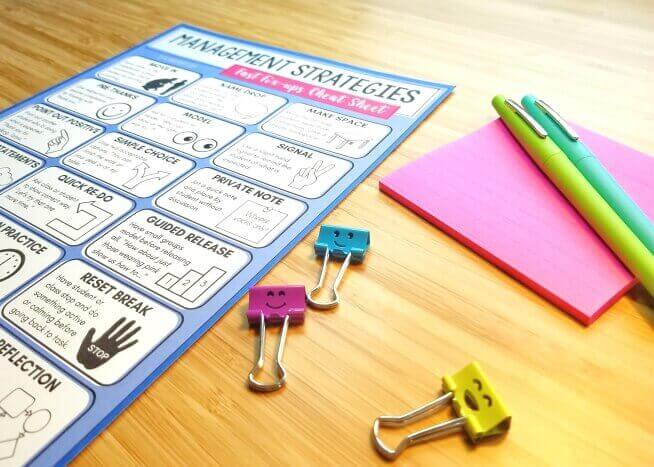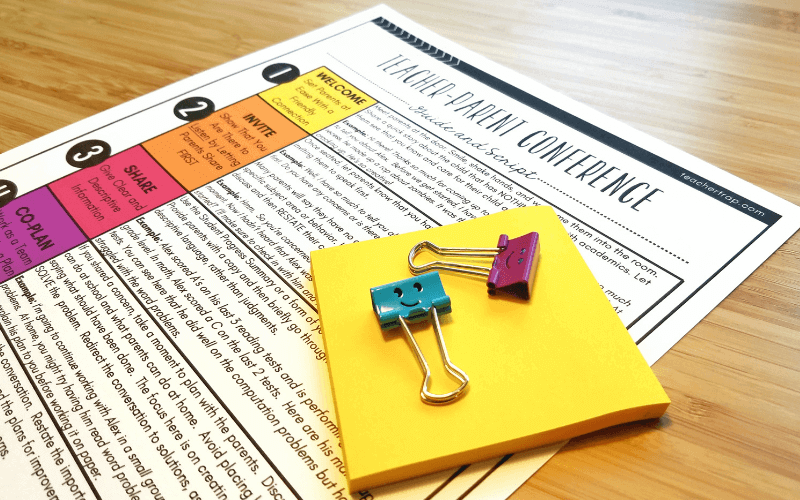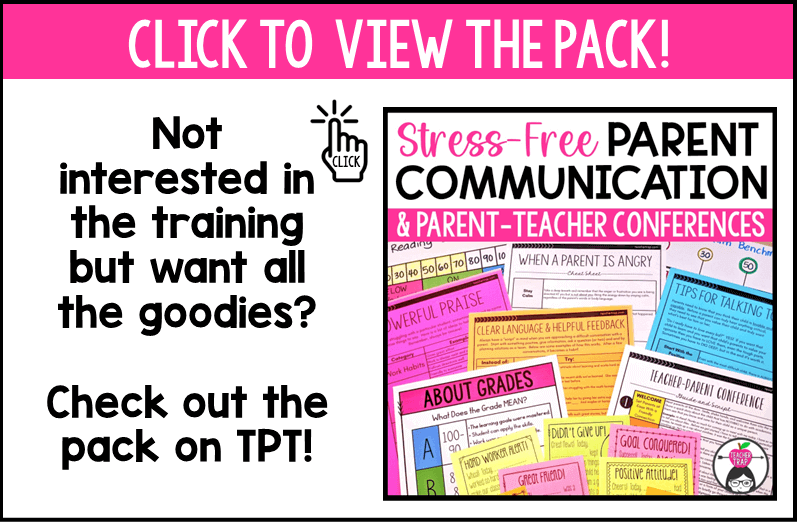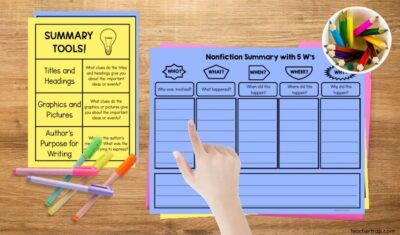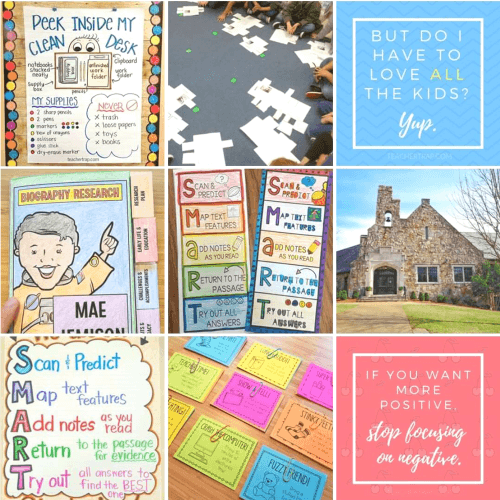The parent-teacher conference may be the single most important event of the school year. For many parents, this is the ONE time they visit the classroom and speak to the teacher about their child, the ONE time they get real and meaningful feedback on their child’s progress, and the ONE time they learn about the specific things they can do to help their child succeed.
With a little bit of planning and a simple conference structure, you can make your parent conferences so much more than just another meeting.

Positive Parent-Teacher Conferences
Your attitude makes a huge difference in how parents receive feedback on their child. If you feel frustrated, resentful, or negative, parents will know and it will absolutely affect the way they receive your messages.
The goal is to get parents on board in supporting their child, not to shame or embarrass them. Kindness and respect are much more likely to get you your desired results.
Before each meeting, take a moment to identify specific things you love or appreciate about the child, even if it’s something small. Notice any negative assumptions you may be making about the family and then deliberately choose to assume good intentions.
See the parents as who you hope for them to be, regardless of prior experiences with them. Sometimes, just shifting the way you look at something is the beginning of changing it!
Planning Parent Conferences
In my blog post about sharing student progress, I encourage teachers to identify what is most essential so that you don’t overwhelm them with too much information.
- What are your most important academic and behavioral goals for the child?
- What do you need parents to understand about those goals and the child’s current performance?
- In what specific ways can parents support their child in reaching those goals?
If you focus on too many concerns, they are more likely to lose the key take-away’s. Get clear on your message and be ready to illustrate exactly what you mean in a way that parents can understand. Visual aids, work samples, and explanations of grades or levels can be especially helpful.
Clear Communication (No Teacher Talk!)
As teachers, we have a terrible habit of using educational jargon with families. From acronyms and assessment names to levels and instructional programs, we often use terms that aren’t familiar to anyone outside of the educational world.
If you rush through a parent conference and throw out terms like I-Ready, Guided Reading, benchmarks, universal screener, DIBELS, formative assessment, or even fluency, most parents will end up confused or checked out.
Think ahead about how you can help parents understand the meaning behind the information you intend to share. Have examples and visuals readily available, and whenever possible, simplify your language.
Parent Teacher Conference Script
Having a framework for the conversation can help you feel prepared and ensure that you include all of the relevant information. It can also help you make room for parents to share their questions and concerns.
In my online course Positive Parent-Teacher Partnerships, I share guides and scripts for all types of conversations from standard parent conferences to phone calls about a behavior issue. You can also grab all my handy guides and cheat-sheets in my Positive Parent Communication Pack on TPT.
During a conference, I always follow a basic format:
- Start with something positive and make a personal connection
- Invite parents to share any concerns
- Give specific, nonjudgmental feedback (use visuals and examples)
- Restate what was discussed or decided
Check out my handy scripts or create your own framework to keep the conversation focused and on track.
Parents who feel respected and informed are far more likely and better able to help their child at home, and much more likely to support your efforts as the teacher.







